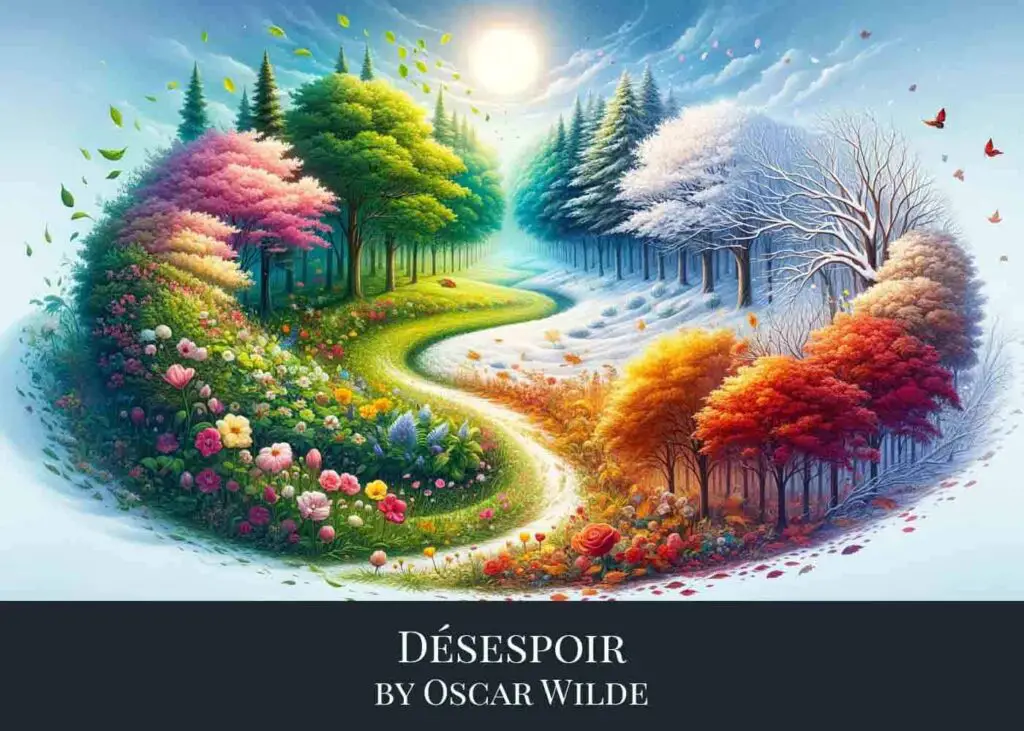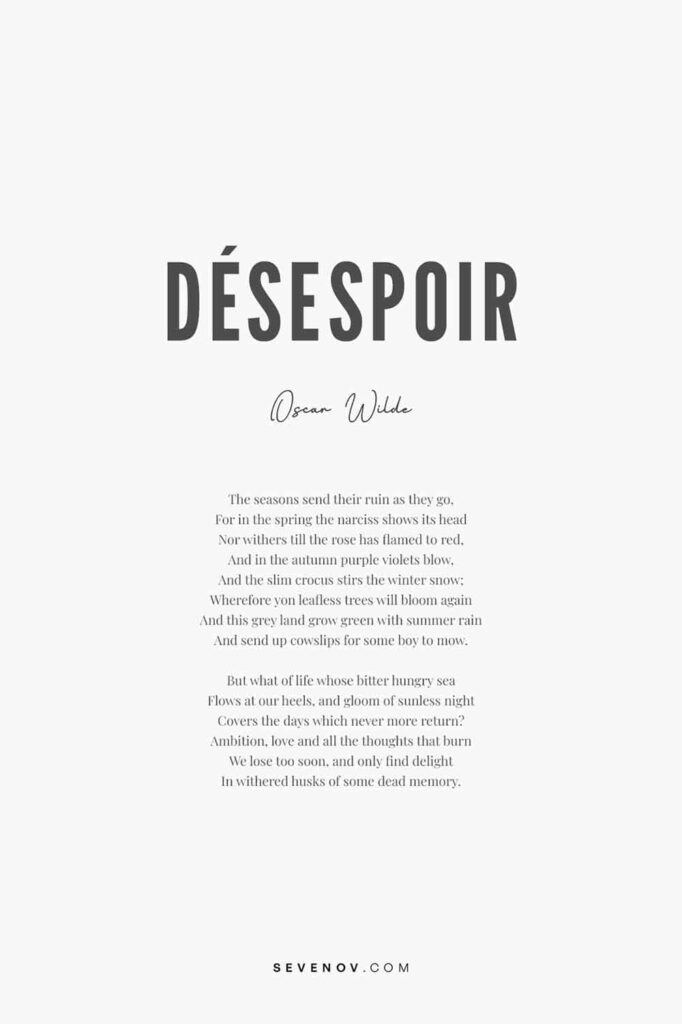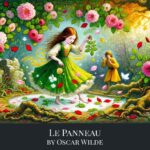
Désespoir by Oscar Wilde
“Désespoir” is a thought-provoking poem by Irish poet and dramatist Oscar Wilde, featured in his poetry book Poems. This piece delves into the themes of the transience of life and the enduring, cyclical nature of the seasons. “Désespoir” offers a poignant meditation on the human condition, juxtaposing the perpetual renewal of nature with the ephemeral nature of human existence. It captures the melancholic realization that, unlike the seasons, human life does not renew but progresses towards an inevitable end.
For those interested in exploring more poetic expression, “Désespoir” and other works are available in Oscar Wilde’s Poems at PageVio.
1. The Poem
The seasons send their ruin as they go,
For in the spring the narciss shows its head
Nor withers till the rose has flamed to red,
And in the autumn purple violets blow,
And the slim crocus stirs the winter snow;
Wherefore yon leafless trees will bloom again
And this grey land grow green with summer rain
And send up cowslips for some boy to mow.
But what of life whose bitter hungry sea
Flows at our heels, and gloom of sunless night
Covers the days which never more return?
Ambition, love and all the thoughts that burn
We lose too soon, and only find delight
In withered husks of some dead memory.

Size: 8″ x 12″ (2:3 ratio)
Format: PDF
Copyright information: For personal use only
Note: Actual poster background color is white. For the sample poster, the background is made gray for illustration purpose.
2. Désespoir Analysis
“Désespoir” reflects on the transient nature of life and the enduring cycles of nature. The first stanza draws a vivid picture of the changing seasons, each bringing its own beauty and demise: the narcissus in spring, the red-flamed rose, the autumn violets, and the crocus stirring the winter snow. These images symbolize the cyclical and renewing aspect of nature; despite seeming ruin, there is always rebirth and renewal (“yon leafless trees will bloom again,” “this grey land grow green with summer rain”). The natural world is depicted as resilient and perpetual, with each season giving way to the next in a never-ending cycle.
The second stanza contrasts this with the human experience of life, which is portrayed as fleeting and linear. The “bitter hungry sea” and “gloom of sunless night” metaphorically describe the struggles and inevitable end of human life. Days that pass will “never more return,” underscoring the finality of human existence. Human pursuits like ambition and love, along with all passionate thoughts, are temporary and often lost too soon. The poem concludes with a melancholic realization that only in “withered husks of some dead memory” does one find delight, suggesting that what remains at the end of life are only the remnants of past joys and experiences, now faded and distant.
The poem contrasts the enduring, cyclic nature of the seasons with the ephemeral, one-directional flow of human life, highlighting the poignant truth of life’s brevity and the lasting comfort found in nature’s continuity.
3. Conclusion
We trust the poignant words of Oscar Wilde’s “Désespoir,” with its reflections on life’s fleeting nature against the backdrop of changing seasons, move you. Explore further with our list of Oscar Wilde’s poetry.




